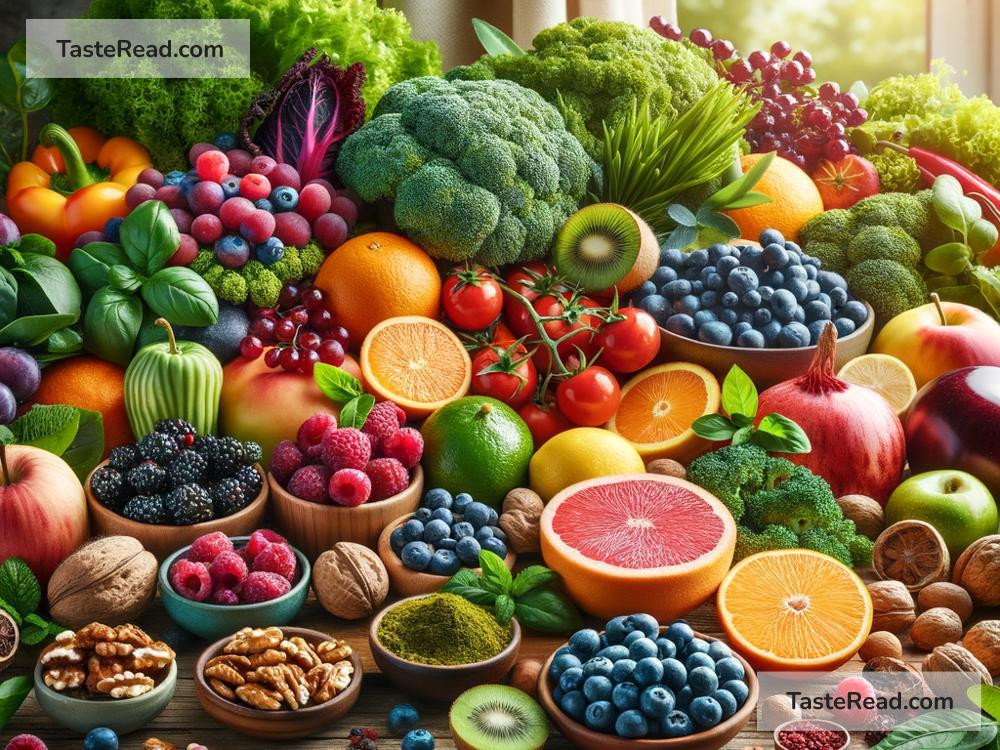Understanding the Role of Dietary Flavonoids in Health
Have you ever wondered why fruits and vegetables are so good for you? A big reason is that they contain special compounds called flavonoids. Flavonoids are a group of natural substances found in plants, and they play a powerful role in keeping our bodies healthy. Scientists have been studying flavonoids for years, and they’re learning more about how these nutrients can protect us from diseases and make us feel better overall.
So, what are flavonoids, exactly? And how can you include more of them in your daily diet? Let’s dive in and explore the fascinating world of dietary flavonoids.
What Are Flavonoids?
Flavonoids are plant-based compounds that belong to a group called polyphenols. Essentially, they are tiny molecules that give plants their vibrant colors. For instance, the deep red of strawberries, the bright green of spinach, and the warm yellow of turmeric are all thanks to various types of flavonoids.
There are six main categories of flavonoids:
1. Flavonols: Found in onions, kale, and broccoli.
2. Flavones: Found in parsley, celery, and the spice chamomile.
3. Flavan-3-ols: Found in tea, cocoa, and apples.
4. Flavanones: Found in citrus fruits like oranges and lemons.
5. Anthocyanins: Found in berries, red cabbage, and cherries.
6. Isoflavones: Found in soy products like tofu and soy milk.
Each type of flavonoid has unique benefits for your health, but they all work together to support a wide range of biological processes in the body.
How Do Flavonoids Benefit Health?
Flavonoids help your body in many different ways, and scientists believe they play a key role in protecting against various conditions. Their benefits mainly come from their antioxidant and anti-inflammatory properties. Let’s break this down:
1. Fighting Free Radicals (Antioxidants)
Think of free radicals as little troublemakers in your body. These unstable molecules are created by things like pollution, cigarette smoke, and even the food we eat. If too many free radicals build up, they can damage your cells and lead to aging and diseases like cancer. Flavonoids act as antioxidants, which means they help neutralize free radicals and protect your cells from harm.
2. Reducing Inflammation
Inflammation is your body’s way of healing itself after an injury, but when it lasts too long, it can lead to problems like arthritis or diabetes. Flavonoids help calm inflammation, keeping your immune system balanced and healthy.
3. Supporting Heart Health
Many studies show that flavonoids can improve heart health. They can lower your blood pressure, improve blood flow, and reduce bad cholesterol levels. This means eating more flavonoids could lower your risk of heart disease and stroke.
4. Boosting Brain Health
Research suggests that flavonoids may help protect your brain and improve memory. They can reduce the risk of conditions like Alzheimer’s and Parkinson’s disease by promoting healthy blood flow to the brain and reducing inflammation.
5. Helping Manage Weight
Flavonoids may even play a role in weight management. Some studies show that certain flavonoids can help regulate fat storage in the body or improve how your body burns calories.
How to Get More Flavonoids in Your Diet
The good news is that flavonoids are easy to add to your diet. They’re found in common foods and beverages that many people already enjoy. Here are some simple tips for increasing your flavonoid intake:
1. Eat a Rainbow
The more colorful your plate, the better! Fruits and vegetables with vibrant colors tend to be rich in flavonoids. Add a mix of berries, leafy greens, peppers, and purple cabbage to your meals.
2. Drink Tea
Both green and black tea are loaded with flavonoids. Swap your morning coffee for tea once in a while, or enjoy a hot cup of tea as an afternoon treat.
3. Snack on Dark Chocolate
Good news for chocolate lovers: dark chocolate contains flavonoids from cocoa. Aim for chocolate with at least 70% cocoa to get the maximum benefit. Just remember to enjoy it in moderation.
4. Include Citrus Fruits
Oranges, lemons, and grapefruits are packed with flavonoids. Have them as a snack, blend them into smoothies, or squeeze fresh lemon juice onto your food for a zesty flavor boost.
5. Add Spices and Herbs
Spices like turmeric and herbs like parsley and thyme contain flavonoids. Add them to soups, sauces, and marinades to boost both flavor and nutrition.
Flavonoids and Balance
While flavonoids offer amazing benefits, it’s important to remember that they work best as part of an overall healthy lifestyle. Eating more fruits and vegetables, staying active, getting enough sleep, and managing stress are all key to feeling great. Flavonoids are like little helpers that make your healthy habits even more effective.
Conclusion
Dietary flavonoids are small but mighty compounds that can make a big difference in your health. They fight free radicals, reduce inflammation, and protect your heart and brain. By eating a variety of colorful fruits and vegetables, drinking tea, and enjoying foods like citrus fruits and dark chocolate, you can easily include more flavonoids in your daily diet.
Next time you shop for groceries, try to choose foods rich in flavonoids. Not only will your meals look more colorful, but your body will thank you for giving it the nutrients it needs to thrive. Making these small changes could lead to big benefits for your overall health and wellness!


